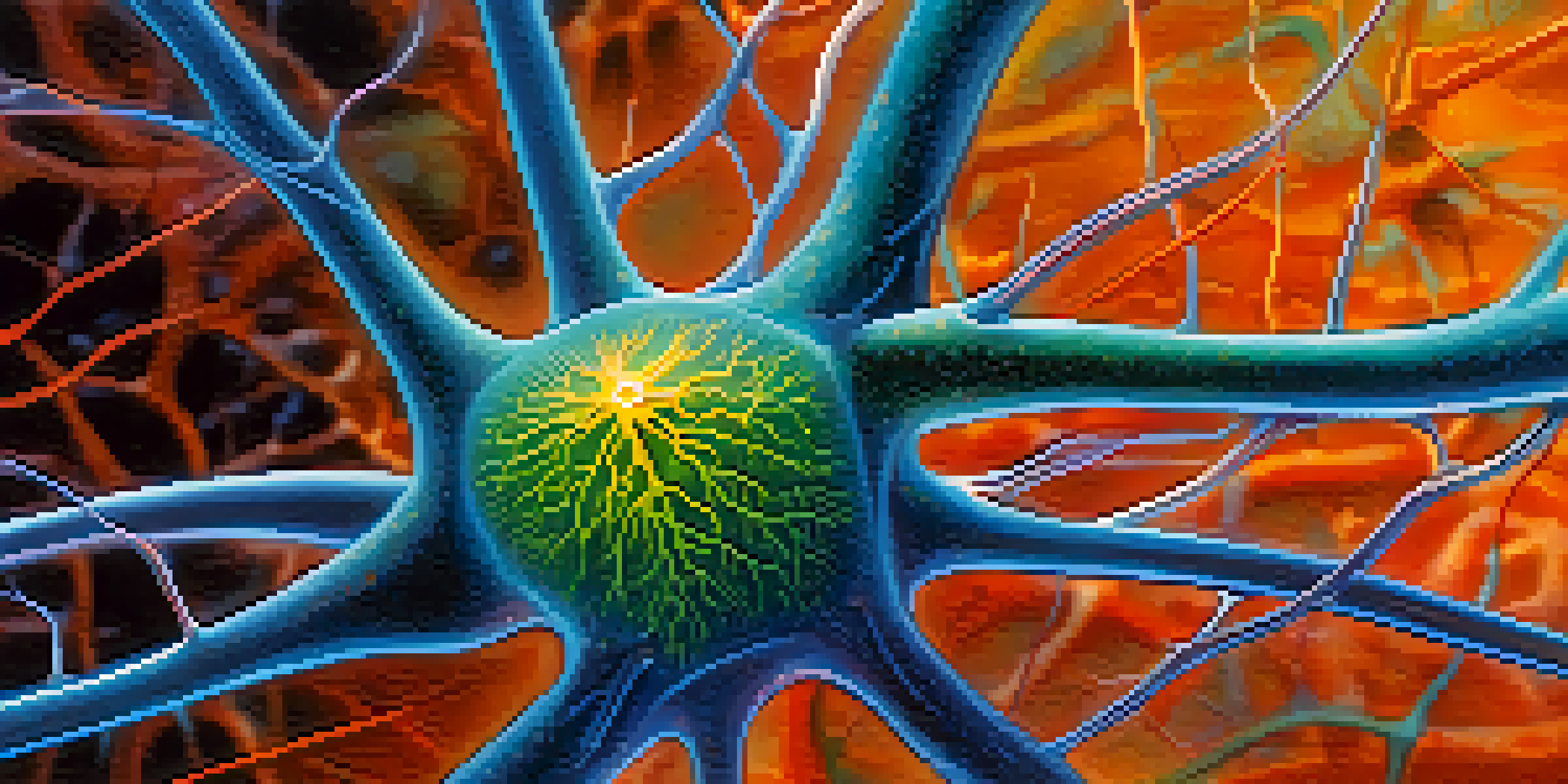The Role of Neurons: Building Blocks of the Nervous System

What Are Neurons and Their Basic Functions?
Neurons are specialized cells that transmit information throughout the body, serving as the fundamental building blocks of the nervous system. They communicate via electrical impulses and chemical signals, enabling rapid responses to stimuli. Each neuron has a unique structure comprising a cell body, dendrites, and an axon, which together facilitate this intricate communication system.
The Structure of Neurons: A Closer Look
Understanding the structure of neurons is key to grasping their function. The cell body contains the nucleus and organelles, while dendrites receive signals from other neurons. The axon, a long projection, transmits impulses away from the cell body, often wrapped in myelin, which speeds up signal transmission. This complex architecture allows neurons to efficiently relay messages across long distances in the body.
Neurons: The Body's Communicators
Neurons are specialized cells that transmit information throughout the body, forming the essential network of the nervous system.
Types of Neurons: Diverse Roles in the Body
Neurons come in various types, each serving specific roles in the nervous system. Sensory neurons carry information from sensory receptors to the central nervous system, enabling us to perceive our environment. Motor neurons, on the other hand, transmit signals from the central nervous system to muscles, facilitating movement. Interneurons connect different neurons within the brain and spinal cord, playing vital roles in reflexes and complex processing.
How Neurons Communicate: Synapses Explained
Neurons communicate at junctions known as synapses, where the axon terminal of one neuron meets the dendrite of another. When an electrical impulse reaches the axon terminal, it triggers the release of neurotransmitters, which cross the synaptic gap and bind to receptors on the receiving neuron. This process allows for the transmission of signals, and the type of neurotransmitter can influence whether the next neuron will fire an impulse or not.
Neuroplasticity and Learning
Neuroplasticity allows neurons to adapt and form new connections, playing a crucial role in learning and recovery from injuries.
Neuroplasticity: Neurons and Learning
Neuroplasticity refers to the brain's ability to adapt and change in response to experience, learning, or injury. Neurons can form new connections or strengthen existing ones, which is crucial for learning new skills or recovering from brain injuries. This adaptability means that our neural pathways can evolve over time, making it possible for us to improve our cognitive abilities and even change behaviors.
The Importance of Glial Cells: Support for Neurons
While neurons are the stars of the show, glial cells play a critical supporting role. These cells provide structural support, insulation, and nourishment to neurons, ensuring their optimal functioning. Glial cells also help maintain the balance of neurotransmitters and support the repair of nervous tissue, highlighting that the nervous system is a team effort between different cell types.
Glial Cells: Neuron Support Team
Glial cells provide vital support to neurons, ensuring their proper functioning and maintaining the overall health of the nervous system.
Neurons and Diseases: Understanding Neurological Disorders
When neurons malfunction, it can lead to various neurological disorders, such as Alzheimer's, Parkinson's, and multiple sclerosis. These conditions can disrupt communication between neurons, resulting in cognitive decline, motor dysfunction, and other serious symptoms. Research into neuronal health and disease is ongoing, aiming to find more effective treatments and enhance our understanding of how to protect our nervous system.
Conclusion: Neurons as the Nervous System's Foundation
In summary, neurons are indispensable components of the nervous system, responsible for transmitting information and enabling communication throughout the body. Their unique structure and diverse functions underscore their role as the foundation of our cognitive and motor abilities. Understanding neurons not only illuminates how our bodies function but also opens doors for advancements in treating neurological disorders.